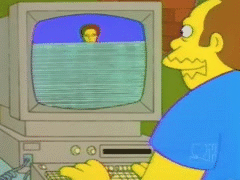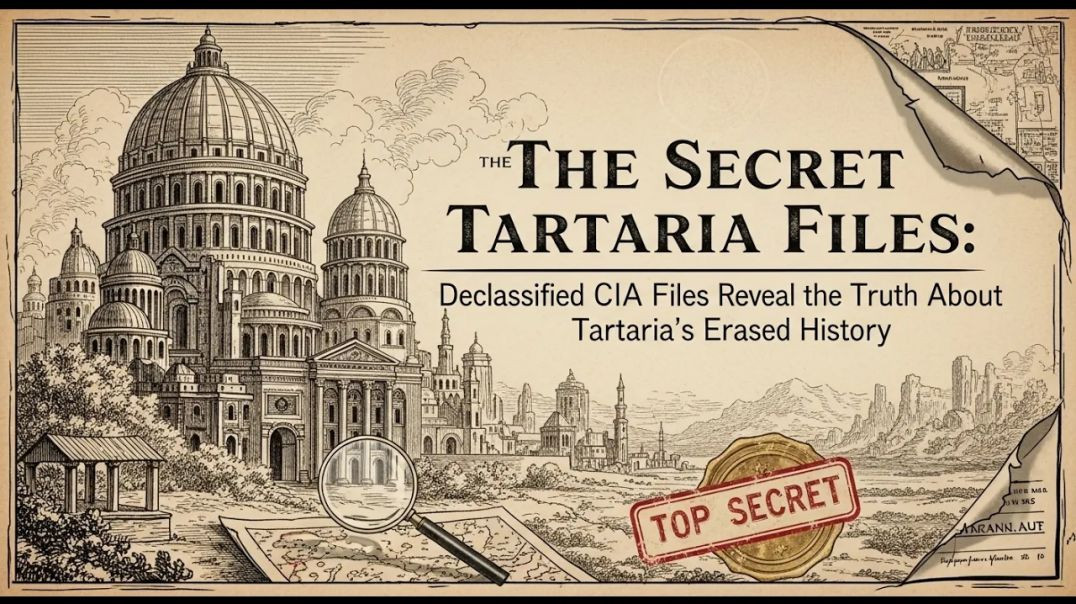Live streaming on Altcast.TV is now available!
THE SECRET ₪ OF SECRET SOCIETIES
We're going to do things a little differently today
We're going to apply sunlight to an occult ritual that took place in plain sight: THE SACRIFICIAL PHARMACEUTICAL RITUAL MURDER OF GRACE SCHARA
Landmark Covid Trial: Ongoing Coverage
Day Nine: Experts Dodge Questions
Two expert witnesses for the defense took the stand in the ninth day of Schara v Ascension Health.
First up was Mary Beach, MD, a medical ethicist from the Johns Hopkins Bloomberg School of Public Health. Incidentally, hers is the same organization that has hosted several prescient tabletop exercises for the reputed purpose of pandemic or catastrophe preparedness. These include:
2001: “Dark Winter” depicted a (then obscure) terrorist group called Al Qaeda setting off an outbreak of smallpox in the U.S. The event occurred less than three months prior to the 9/11 attacks.
2017: The “SPARS Pandemic” drill involved a novel coronavirus spread from Asia. The exercise addressed issues such as broadcasting an officially inflated fatality rate, dealing with “misinformation” rumors that “SPARS-CoV” originated in a government-funded lab, and liability protection for vaccine manufacturers.
2018: CladeX addressed a fast-moving man-made respiratory virus which wiped out more than 100 million people worldwide. The perpetrators used gene-editing CRISPR technology to create the novel pathogen. Scientists moved quickly to sequence the viral genome and develop vaccines, but the pandemic left the global economy in shambles.
2019: “Event 201” was the infamous planning session which concluded only weeks before Covid-19 burst on the scene. Like “SPARS,” it involved a hypothetical novel Chinese coronavirus, global lockdowns, massive economic disruption, censorship of “misinformation,” and implementation of a globally coordinated health policy.
None of these Johns Hopkins exercises came up during Beach’s testimony. She noted that she was not called to testify regarding Grace’s cause of death or particular standard of care. Instead, she was consulted as an expert on the sedatives used on Grace as well as general standards of informed consent and DNR/DNI orders. (The acronyms stand for “Do Not Resuscitate” and “Do Not Intubate.”)
Her direct examination backed up every decision and action of the hospital staff in Grace’s case. On cross examination, she agreed that a patient advocate for a disabled person would not be equivalent to a visitor, contradicting yesterday’s testimony of Nurse Barkholtz.
The plaintiff’s attorney asked compelling questions in cross-examination regarding the hospital’s removal of Grace’s patient advocate (her father, Scott) and its stonewalling of his replacement (her sister, Jessica). Beach disclaimed any inappropriate action on the part of the hospital in this regard. She also stated her opinion that hospital staff had acted appropriately in their administration of Precedex to a patient who had already had two adverse reactions to it.
Before Dr. Beach was dismissed, one of the jurors posed what seemed like a rhetorical question: Since Scott Schara asked to know every medication his daughter was receiving, was it medically ethical to withhold information from him, regardless of “informed consent” policies? Dr. Beach did not answer directly but commented about the inappropriateness of doing so.
Registered nurse Julie Davis next took the stand. A specialist in critical care, she appeared on behalf of the defense to provide expert nursing opinions. Davis rejected the conclusions of plaintiff expert witness Dr. Gilbert Berdine, a respiratory and critical care specialist, that Grace suffered any overdose or died from metabolic acidosis. Her rationale was that Precedex is a titratable medication.
Like Beach, Davis justified all activity of all nurses who cared for Grace. Davis claimed the nurses would have violated a doctor’s order had they complied with the power of attorneys’ denial of DNR as Grace was dying.
Davis also alleged that Grace never lost advocacy at any point during her admission, though this 19-year-old Down syndrome patient was deprived by the hospital of her bedside advocate for more than 30 hours.
On cross examination, the plaintiff’s attorney asked whether it was outside their scope of practice for nurses to initiate an urgent discussion about DNR with the doctor, as Grace’s family had requested. Failing to answer directly, Davis insisted that the nurses had acted appropriately when they ignored the request.
The attorney asked: “Is it a breach of standard of care to administer morphine to a patient without a pulse” or without palpable blood pressure? Davis dodged by noting that these conditions indicate death, so no, you would not administer morphine.
Pressing further, the attorney addressed Davis’ claim that St. Elizabeth Hospital’s nursing staff had met all aspects of standard of care in regard to Grace. (During direct examination, Davis had refuted the conclusions of Suzi Eichinger, the plaintiff’s expert witness in nursing. Eichinger had found 13 standard-of-care breaches.) “You have never supervised, hired or fired a single nurse?” the attorney queried. Once Davis admitted that she has not, he noted that Eichinger had 37 years’ experience as an ICU nurse – many of those years spent in a supervisory position.
The attorney then called Davis’ “expert” status into question. She had previously worked as a schoolteacher before changing careers to go into nursing. He pointed out that she entered the field of nursing consultancy after only two-and-a-half years of practice. The attorney also went into great detail about Davis’ consultancy fees, complaining that his team has yet to be provided with complete information. Davis explained her rates are $135 per hour to review records, $250 per hour for testimony and $95 per hour for trial time. However, no total of invoices was mentioned.
The attorney then asked Davis to read directly from a drug reference guide about the risks from concomitant use of Precedex with other respiratory depressants or benzodiazepines, all of which were administered to Grace shortly before her death. The literature included strong language about limiting doses and durations, as well as a nurse’s responsibility to monitor for respiratory depression in patients on these medications. Regardless, Davis insisted that Grace never suffered an overdose, even after the attorney pointed out that the defense expert witness in toxicology had earlier this week admitted Grace’s overdose. He countered by pointing out that Davis is not an expert in toxicology or pharmacology, and that contrary to previous testimony and evidence, Davis had disclaimed the synergistic effect of these drugs in combination.
The judge had to intervene three times during Davis’ testimony to insist that she answer the plaintiff attorney’s questions directly. After the third admonishment, she was forced to admit that, should a nurse have questions or concerns about a doctor’s order, he or she should address them with the ordering physician. She also agreed that monitoring for respiratory depression is part of an ICU nurse’s standard of care.
After Davis was dismissed, the judge mentioned to attorneys that he thought she went outside her area of expertise “in a lot of areas.” He was surprised that no objections were lodged.
Since today is Friday, court adjourned early, at 2:13 p.m. Central time. The judge said he expects jury deliberation to begin as early as next Wednesday, June 18.
Final defense witnesses and plaintiff rebuttal witnesses will be called on Monday and Tuesday. Both Dr. Gavin Shokar and nurse Hollee McInnis are scheduled to be called for the defense. Scott Schara and Dr. Gilbert Berdine will appear with rebuttal.
Watch each day’s testimony here: https://www.youtube.com/@TheNewAmericanVideo
Day Eight: Heated Cross Examinations of Experts
The eighth day of testimony in Schara v Ascension Health has been the most action-packed yet. It began with testimony by Dr. Brian Garibaldi, a pulmonary and critical care specialist who is a member of the Pulmonary-Allergy Drugs Advisory Committee of the U.S. Food and Drug Administration.
He began by explaining the anatomy and physiology of lungs and described the ventilator as life-saving and crucial to Covid hospital treatment. He also explained the process of acute respiratory distress syndrome (ARDS). Garibaldi stated emphatically several times that the ventilator was Grace’s only chance of survival.
He implied that the family’s refusal to consent to ventilator was what killed her.
This expert witness insisted that there was nothing in her record to indicate Grace did not consistently receive care from the hospital appropriate to her condition. (The prosecution has been fixated on driving these points home to the jury throughout the course of their witness testimony.) Garibaldi repeatedly referred to Grace as a critical case and said she was so far gone that, had she recovered, it would have been a long, arduous road to full health. In fact, he was uncertain she ever would have attained that goal. He claimed the anti-anxiety lorazepam administered to her (on top of the sedative drug Precedex) was in extremely low doses.
He refuted the plaintiff’s expert witness, Dr. Gilbert Berdine (a respiratory and critical care specialist), saying that the record indicates Grace never suffered metabolic acidosis. He again implied that her family prevented the hospital from saving Grace’s life by disallowing intubation.
The plaintiff’s attorney came out swinging in cross-examination. He first made it know that Garibaldi has been receiving $12,000 a day in consultation fees from the defense.
He forced Garibaldi to admit that there is no documentation of a conversation between Dr. Shokar (Grace’s attending ICU physician) and the family to indicate that Shokar informed them Grace’s life depended on intubation.
Garibaldi consistently denied that Grace experienced an overdose, though she had to have a PICC line inserted so overdose antidote drugs could be administered on October 8. He qualified his answer by saying the drugs were administered to remedy the adverse reaction she had to the amount of Precedex she was receiving.
Plaintiff attorneys demonstrated that Garibaldi disagreed with the definition of “overdose” given by fellow defense expert witness, Dr. Bruce Goldberg, who is a toxicologist. Goldberg defined the term as any dosage of a drug that causes a negative effect. Garibaldi, on the other hand, insisted that Grace never suffered overdose.
Garibaldi admitted in cross-examination that according to her records, Grace was restrained in her bed at least twice, despite defendants’ earlier testimony to the contrary. He also had to admit that Grace’s rate of breathing was not high until the day of her death, after Precedex dosage was increased to the maximum allowed. He claimed that keeping a patient on Precedex for longer than 24 hours (the maximum allowed according to FDA-approved drug literature) is not uncommon, but he admitted that if a patient were on it for longer than a week, the case should be reevaluated.
Debate heated up further over the topic of DNR orders (Do Not Resuscitate) and informed consent.
Garibaldi said it is not standard of care to obtain signature on informed consent for DNR, and that it is not outside standard of care for a physician to obtain informed consent from an unwitnessed telephone discussion with the patient’s power of attorney.
(Interestingly, the plaintiff’s attorney did not take the opportunity at this point to note that, if so, it should be just as simple to revoke a DNR. Scott and Cindy Schara and their daughter Jessica have all testified that they denied DNR the day Grace died. They say none of them ever consented to it. But multiple nurses refused to help them as Grace was dying. The nurses collectively referenced the DNR that Dr. Shokar had imposed as their reason for refusal.)
The attorney pointed out various discrepancies between Garibaldi’s report for the defense and Grace’s medication record. Garibaldi insisted that none of these points negated what he called the “fact” that Grace died of Covid-19.
He admitted that none of the care providers obtained consent for any of the sedative medicines Grace received, though he said that step was not required since upon admission to ICU consent would be implied.
He alleged that the healthcare providers would not be required to obtain informed consent from the family.
Next on the stand was Dr. Nicholas Sylvia, a pharmacist and director of pharmacy for St. Elizabeth Hospital. He did not take care of Grace during her stay in 2021 and merely explained that nothing in Grace’s medication record appeared unusual. He said that Precedex is commonly ordered for ICU patients for well more than 24 hours. “You’re not here to tell anyone anything about Grace’s cause of death, correct?” countered the plaintiff. He admitted he was not an expert witness and could not comment on Grace’s case because he had nothing to do with her case.
The last witness of the day was the registered nurse who evicted Scott Schara from his daughter’s hospital room on October 10, 2021. Alison Barkholtz identified herself as the lead RN of the intensive care unit at Saint Elizabeth Hospital.
She said she removed Scott primarily because of his evident Covid infection. She said her concern was for him. She was also aware that nurses had complained about him being rude to them and turning off alarms in Grace’s hospital room. She claimed that the armed security guard who escorted her into the room to evict Scott was only there to help collect personal belongings and conduct Scott safely out of the building.
Barkholtz accused Scott of repeatedly silencing a vital alarm that monitored Grace’s oxygen levels. She said his interference also turned off the alarm indicator at the nurse’s station and then stated, “Mr. Schara was placing [Grace’s] life at risk,” by doing so.
The defense and Barkholtz continued to refer to Scott as a “visitor,” but on cross-exam, Schara’s attorney pointed out he was more than that. He was a patient advocate for his disabled daughter. Moreover, upon his removal, Jessica (Grace’s elder sister and power of attorney) was prevented from replacing him as patient advocate for more than 24 hours. The attorney read to Barkholtz her employer’s exceptions for such caregivers and advocates, but Barkholtz insisted that visitor, caregiver and advocate are all synonymous. She refused to acknowledge her employer’s exemptions.
The attorney then asked Barkholtz about the iatrogenic (hospital-induced) injury to Grace on October 8.
Amazingly, Barkholtz said she did not know the meaning of the term “iatrogenic.” After explaining, the attorney asked her why a life-threatening event that required reversal drugs would not be communicated to incoming staff on subsequent shifts, as revealed in previous testimony. This nursing supervisor replied that she wasn’t on duty that day, and that she acts only as support to the nurses – not as a primary caregiver to patients.
The cross-examination then shifted toward the overdose reversal drugs used on Grace, but by that time, Barkholtz’s attitude had become openly antagonistic. She dodged the attorney’s questions, claiming he was not making himself clear. He ended the session.
Earlier in the afternoon, Judge Mark McGinnis paused briefly to issue a warning to people attending the trial as spectators. He said two jurors had complained of distracting or disruptive behavior from the gallery. He reminded them that they are welcome to attend the public trial but must adhere to his published rules, which demand silence and stillness from attendees. He said he will issue no more warnings and also reminded everyone of potential sanctions for violators.
Before adjourning for the day, McGinnis also mentioned one juror who has asked to be excused from the case. The judge did not specify the juror’s reason but made that person’s written explanation available to all attorneys for their review.
You can view the day’s proceedings here:
In the video above (Day 8), at time stamp 7:49:39, you’ll hear one of the defense attorneys ask registered nurse Alison Barkholtz a question about whether the hospital visitation policy had exceptions for patient advocates, such as Scott was for his disabled daughter.
Attorney: “Nurse Barkholtz, I believe there may have been some, just terminology, but there may have been some mischaracterizations there. To your knowledge, was anyone exempt from visitor policies?”
Barkholtz: “In regards to… what are you referring to? Like, they get to be an asshole?”
Remember, this was the charge nurse who evicted Scott. The fact that she would say this paints a picture of how they felt about and treated Scott. Ask yourself: would you want this nurse caring for you or a family member? Notice, too, that the judge did not reprimand her for this violation of the dignity of the court. It is curious that the plaintiff’s attorneys did not object, but perhaps they did not hear or understand her.
Watch each day’s testimony here: https://www.youtube.com/@TheNewAmericanVideo
Day Seven: Defense Expert Witnesses
Today’s testimony in Schara v Ascension Health began with radiologist Aaron Binstock, MD, who gave a tutorial on the basic anatomy of respiration. He then went over Grace’s x-rays specifically, explaining what he described as an accelerating severity of Covid progression in her lungs.
In cross examination he admitted his assessment was subjective, as the field of radiology is known for being so. He was not able to confirm whether Grace was receiving appropriate medications or care, or what contributed to her deterioration. He could only confirm that her condition was deteriorating.
The bulk of the day was spent with infectious disease expert David Fisk, MD. He spent a lot of time talking about Covid – how dangerous it is, its variants, transmissibility, and mortality rates. He alleged that the prosecution’s expert witness, Dr. Berdine, had no basis for his hypothesis that Grace’s cause of death was metabolic acidosis brought on by oversedation with Precedex. Throughout testimony he insisted that the hospital records indicate that “this was a Covid death.”
In cross examination, prosecuting attorneys caught embarrassing inconsistencies between his previous deposition given during discovery and his current testimony. He reluctantly agreed that her father’s removal from her hospital room contributed to Grace’s deteriorating condition on October 10, 2021. He effectively admitted that Covid blinders on Grace’s care providers would have caused them to attribute her condition to Covid and “nothing else,” regardless of lab results. He also admitted that he does not use Precedex or know much about it.
His testimony ran past 5:00 p.m. Central time because he had to catch a flight this evening and therefore could not return tomorrow. However, he insisted to the end that Grace’s chances of survival because of Covid were essentially zero, even if she had been intubated.
Interestingly, his invoices to the defense for consultancy fees totaled $32,000 as of February 2025.
During mid-day recess, the judge pointed out to attorneys that one of the jury members seemed to be sleeping during testimony. He alerted the attorneys to this situation in case any wanted to call it into question. None voiced concerns. At the end of the day, the judge noted that the problem had resolved.
The judge asked all attorneys to submit to him instructions to be placed on the verdict form; he gave them a deadline of this Friday. He said he will work on the form over the weekend.
You can view the day’s proceedings here:
Watch each day’s testimony here: https://www.youtube.com/@TheNewAmericanVideo
Day Six: Grace’s Sister Testifies; Prosecution Rests; Defense Begins Calling Witnesses
Day 6 of the Schara v. Ascension Health jury trial began with heartbreaking testimony from Grace Schara’s sister, Jessica Vanderheiden, who was with Grace when she died. She described her memories of the callousness of nurses who she says refused to help Grace as she was dying. They claimed Grace was “DNR” [classified as “do not resuscitate”], despite repeated pleadings from herself and her parents – the latter via a Facetime call Jessica had placed after realizing Grace was in serious condition.
After Jessica’s testimony, defense attorneys filed a motion to declare mistrial because she had addressed the jury directly during her testimony. The judge denied the motion.
Jessica was the prosecution’s final witness. After she departed the stand, the defense began calling witnesses. The first was Dr. Bruce Goldberg, a toxicologist who testified that there was nothing unusual about Grace’s medication administration record and but did indicate that Grace was overdosed. However, he did admit to prosecuting attorneys that he is not a medical doctor and that as a toxicologist he would not advise the combination of meds Grace received for a patient who was somnolent [very sleepy] and who lacked a palpable pulse.
The final witness was Emily Fisher, a nurse who works at Saint Elizabeth Ascension Hospital. She testified that there was nothing unusual about Grace’s care and that the hospital did all it could to help Grace.
Again, defense attorneys countered with questions that made her admit that her testimony did not counter any charges of the prosecution.
You can watch the day’s proceedings here:
and follow our daily livestream here:
https://www.youtube.com/@TheNewAmericanVideo
Day Five: Expert Witness Suzi Eichinger
The second week of Schara v. Ascension Health began with a full day of testimony by expert witness Suzi Eichinger, a registered nurse from Florida with decades of experience in critical care nursing.
She explained the nurse’s role in helping the family understand, confirm and prepare for a decision to impose a “Do Not Resuscitate” order, thereby launching into one of many illustrations of her belief that healthcare providers in the Schara case breached the standard of care in many ways.
She delineated more than a dozen such breaches.
For example, Samuel Haines, RN, should have notified family of Grace’s initial adverse reaction to a sedation drug, Precedex, which she continued to receive throughout treatment, and which another expert witness, Dr. Gilbert Berdine, has named as the true reason for Grace’s death. Without knowledge of her adverse reaction, the family was hampered from giving informed consent to her care.
Eichinger also testified about ICU alarm protocols, because hospital staff accused Scott of turning off crucial equipment alarms in Grace’s room. Specifically, Eichinger explained that patient movement could trigger false EKG rhythm alarms, prompting nurses to turn them off, thereby illustrating that many alarms can be false alarms.
Watch the full testimony here:
The Schara case centers on the death of 19-year-old Grace Schara, who had Down syndrome and died on October 13, 2021, at St. Elizabeth Hospital in Appleton, Wisconsin, part of the Ascension Healthcare system. She was admitted with COVID-19 symptoms, and her death certificate claims that is what killed her. Her family filed a wrongful death lawsuit against the hospital, Dr. Gavin Shokar, and registered nurse Hollee McInnis, alleging medical negligence, violation of informed consent, and battery. The lawsuit claims Grace was given a combination of sedatives (Precedex, lorazepam, and morphine) without family consent, which allegedly led to respiratory distress and her death, compounded by an unauthorized “Do Not Resuscitate” (DNR) order placed on her chart.
Watch our livestream of the case daily here: https://www.youtube.com/@TheNewAmericanVideo
Day Four: Berdine Expert Witness Testimony Conclusion
The first week of the landmark Schara v. Ascension Health ended with a full day of testimony by the prosecution’s expert witness, Gilbert Berdine, MD. Scott Schara is suing the hospital and several healthcare practitioners in a wrongful death lawsuit centered on his daughter, Grace.
He called Scott’s eviction from Grace’s hospital room “shameful,” as he was her only patient advocate at the time – a role she needed filled as she had Down syndrome. He named multiple breaches of informed consent on the part of the hospital and said they were “indefensible.” He accused providers of administering dangerous medications to their patient that resulted in her death. After enduring two life-threatening overdose events several days earlier, she was administered ever higher doses of Precedex on October 13, 2021. “Insane” was the word he used to describe that situation.
“Administration of morphine on 10/13 to a patient who was unconscious, with no BP, no palpable pulse and a respiratory pattern screaming metabolic acidosis,” he noted, “was the worst clinical decision I have ever witnessed in over 40 years of medical practice.”
The defense attorneys spent several hours trying to save face in cross examination by attempting to discredit Dr. Berdine. However, when the jury was allowed to ask questions of the witness at the end of the day, it was clear his message had hit home.
Watch the testimony here: https://www.youtube.com/watch?v=n14NBNPHVc8
Follow our daily livestream, which will continue through June 20, here: https://www.youtube.com/@TheNewAmericanVideo
Day Three: Expert Witness Testimony
“An overdosage of Precedex caused metabolic acidosis, which was then misinterpreted by the providers as a problem with breathing. Partially in response to that misinterpretation, other medicine was administered – specifically lorazepam. And the problem with the Precedex progressed, and in addition to the metabolic acidosis, Grace lost her blood pressure, so she went into shock. This aggravated the metabolic acidosis.
Grace reached a point where her respiratory compensation was as much as she could do… She reached a maximum compensation, but the metabolic acidosis was not stopped. So the acid – the lactic acid – kept accumulating in the blood. And then shortly before her death, she was administered morphine, which had a catastrophic effect in decreasing her respiratory compensation for the metabolic acidosis. This caused a precipitous decrease in her [blood] pH, and her heart stopped.”
That was only part of Dr. Gilbert Berdine’s explosive testimony during Day 3 of the landmark Schara v. Ascension Health lawsuit. Berdine is an award-winning medical doctor with specialties in respiratory diseases and critical care, and he is an associate professor of medicine at Texas Tech University Health Sciences Center. He has been in practice since 1978. Attorneys for the plaintiffs called him as an expert witness earlier today.
Before his testimony both Hollee McInnis, RN, and Gavin Shokar, MD, had taken the stand. They were, respectively, the nurse and doctor who cared for Grace Schara on the day she died in Saint Elizabeth’s Hospital in Appleton, Wisconsin.
Shokar and McInnis blamed Covid for Grace’s demise, but Berdine tutored the jury on metabolic acidosis (low blood pH due to excess acid or reduced bicarbonate).
Symptoms of metabolic acidosis include rapid breathing, confusion, irregular heartbeat, and agitation and in severe cases, coma or death. According to McInnis and Shokar, Grace had evinced all of these symptoms prior to her death.
Berdine explained to them, using her medical records, that the doctor’s prescribed treatments caused metabolic acidosis in Grace Schara, which triggered her respiratory distress. Berdine stated that she died because they administered Precedex (a surgical sedative), lorazepam (a sedative and hypnotic antianxiety med), and morphine (an opioid that can significantly retard breathing) consecutively to slow her breathing. Instead, he believes, they should have reversed the metabolic acidosis.
He called Grace’s healthcare providers “reckless” and their behavior throughout her course of care as “unforgivable.”
Watch the entire day of testimonies here: https://www.youtube.com/live/-....5Y7_mVKq-s?si=EH1CdD
And join our daily livestream of the case thru June 20: https://www.youtube.com/@TheNewAmericanVideo
Day Two: Scott Schara Testimony
All of Wednesday, June 4, was taken up by testimony of Scott Schara, Grace’s father.
He began with reminiscences of Grace: her talent, her intellect, her humor and her habits. Then he gave a day by day, sometimes hour by hour, account of Grace’s hospital stay and death. He spoke of Grace’s admission to the hospital on October 6, 2021, overdose events on the 7th and 8th, the hospital’s reasons for kicking him out as Grace’s advocate on October 10, the lack of informed consent for many medical interventions used on Grace, and many other issues. Finally, Scott recounted his daughter’s last hours and minutes. He was often tearful during direct examination.
On cross examination, defense attorneys followed the same script they used the day before on Scott’s wife, Cindy. They tried to frame him as a delinquent parent who was responsible for his daughter’s death due to his unreasonable delusions about Covid.
However, on redirect, his own attorney gave Scott a chance to explain to the jury why he believes Grace was targeted by the system, providing statistics that indicate a clear discriminatory bias of the medical establishment against individuals with Down syndrome.
He also provided information about government-funded Covid-protocol incentives. For instance, he said
that during the public health emergency, the federal government was paying hospitals tens and even hundreds of thousands of dollars to put patients on ventilators. He feels that is why the hospital tried to pressure him to sign a pre-authorization for Grace. He refused, having researched the fact that 80 to 90 percent of patients put on ventilators did not survive their hospital stays.
Scott revealed other mistreatment he endured at the hands of hospital staff. For example, they forced him to leave the premises on Grace’s fourth morning in the hospital; the reason he was given was that the nurses didn’t want him there. He had been trying to feed Grace, had proven their medical equipment to be faulty, and had silenced alarms on Grace’s medical equipment according to instructions nurses had given him. Nevertheless, an armed guard escorted him from the building, and the phone number he was given to stay in contact with the hospital was 000-000-0000.
You can listen to his entire testimony on our YouTube channel:
You can also watch our ongoing livestream here or in our partnership with Children’s Health Defense here.
The case is scheduled to continue Monday through Friday until June 20.
Details of the case are here: https://thenewamerican.com/pri....nt/landmark-covid-la
The Schara’s story is available here: https://thenewamerican.com/pri....nt/covid-hospitals-t
Day One: Cindy Schara testimony
The landmark Covid wrongful death suit in Appleton, Wisconsin, began yesterday with the mother of the deceased delivering several hours of testimony both to her attorney and under cross-examination.
Cindy Schara introduced the jury to her daughter, Grace, a high-functioning 19-year-old with Down syndrome. She then described in painful detail the days and hours leading up to Grace’s death, as well as what has happened since. She broke down in tears several times during her testimony.
Despite her apparent exhaustion, the defense immediately cross-examined her, painting her and her husband as crazed conspiracy theorists who believe that government-dictated hospital protocols are designed to kill.
For example, the defense attorney peppered Cindy with questions about her belief that the jab could cause a person to become sterile. He did so in a way to make her appear ridiculous, pulling up particular quotes from her original deposition and showing them to the jury on a large screen in the courtroom. Afterwards, her own attorney panned back on the same page to reveal that the same attorney, during that deposition, had revealed to her that he got the shot and is now fearful that he is sterile.
A second witness, Samuel Haines, finished out the first day of testimony. He is one of the registered nurses who took care of Grace before her death.
You can view their testimony on our YouTube channel.
We’re also teaming with Children’s Health Defense to live-stream each day of the trial. The link is here.
For background on the case, see here and here.
https://thenewamerican.com/pri....nt/landmark-covid-la
https://thenewamerican.com/pri....nt/covid-hospitals-t
Source: https://old.bitchute.com/video/qJBZugP9ATil/
Thumbnail: https://imgflip.com/i/9xk2hd

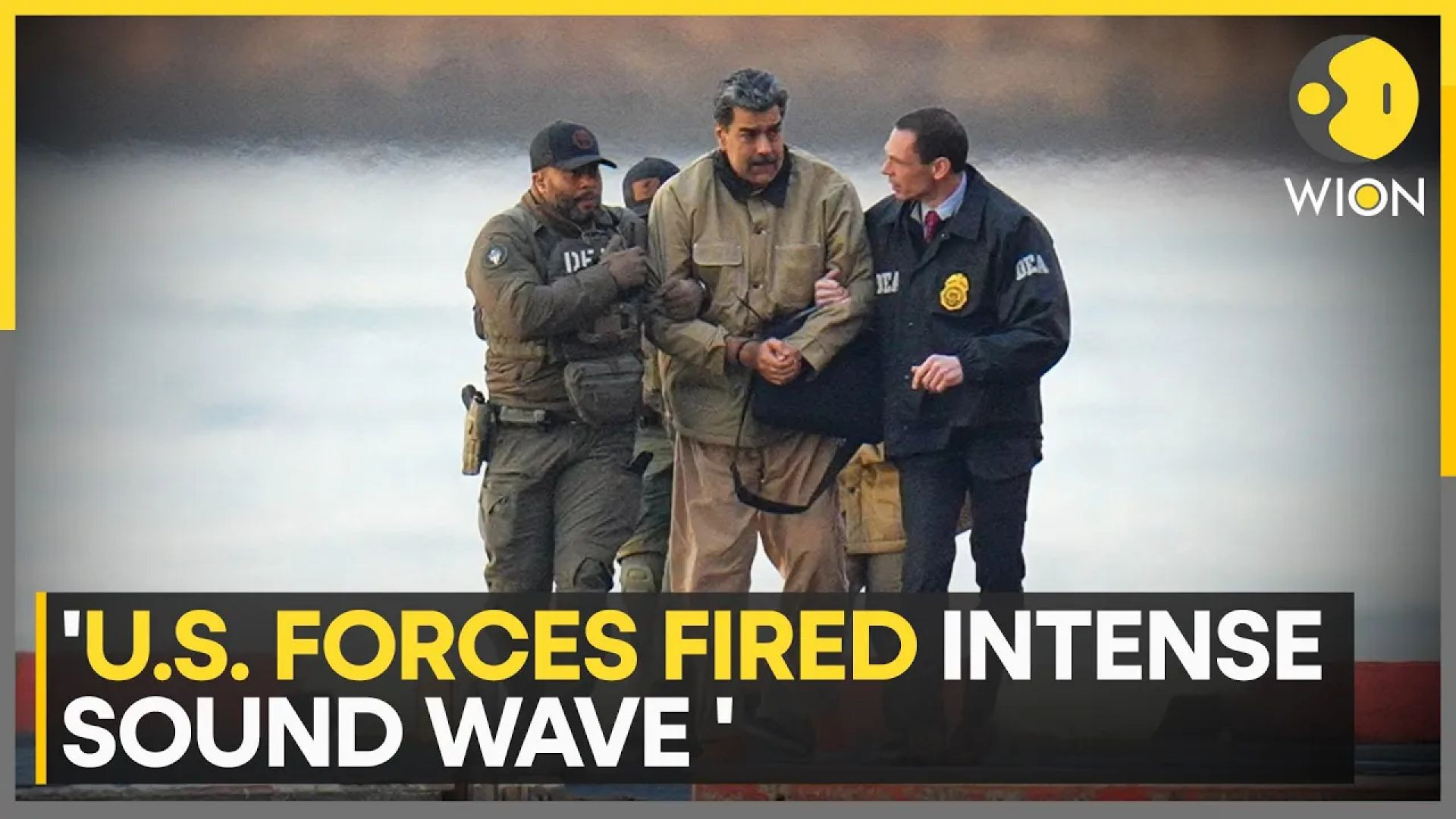



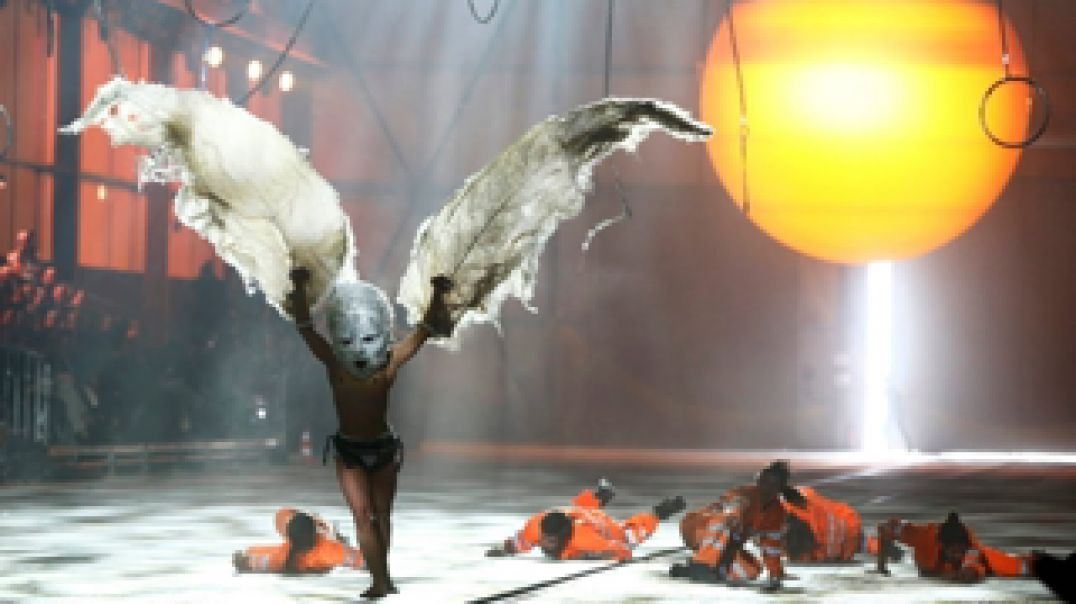

![VATICAN SECRET SOCIETIESː JESUITS AND THE NEW WORLD ORDER [FULL DOCUMENTARY]](https://s3.us-central-1.wasabisys.com/altcast1/upload/photos/2025/11/raa7Pqhk7HFUnQphlVwc_01_20d511c207e8bb08de51a9aa3f4d51b9_image.png)
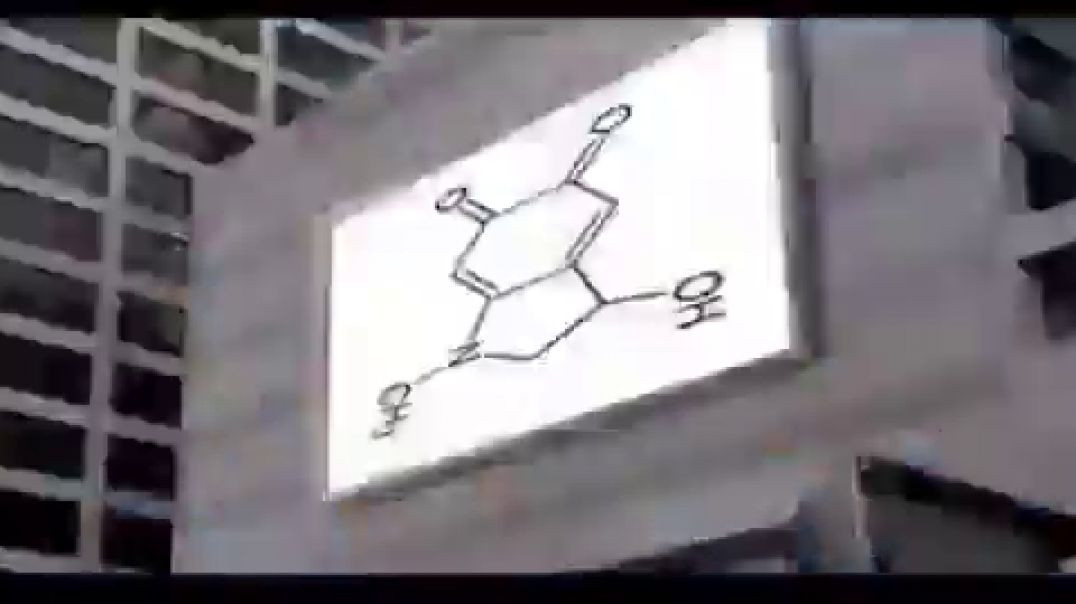


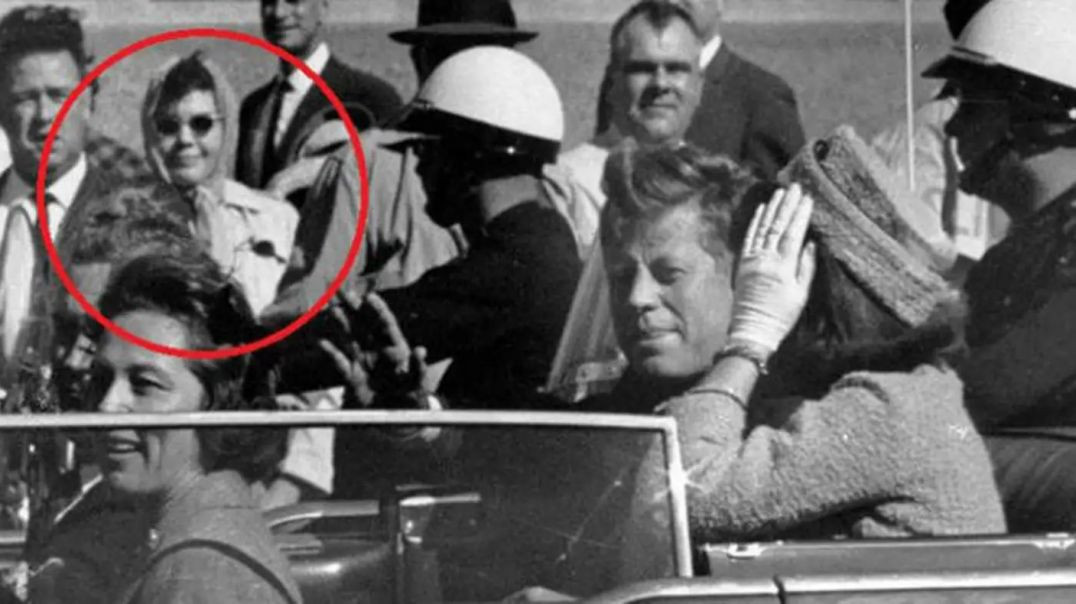
![SECRET CDC MEETINGS TO COVER UP ⚕ VACCINE MERCURY DANGERS [1135% INCREASE IN AUTISM‼️]](https://s3.us-central-1.wasabisys.com/altcast1/upload/photos/2025/07/KY9JZPknafaCSaIlJpnF_01_68efcd9b864246c30f36be4baa927635_image.png)
![BLACKMAIL ONLY WORKS WHEN IT'S A SECRET ₪ [SHELDON AND MIRIAM ADELSON IN THE BIBI FILES]](https://s3.us-central-1.wasabisys.com/altcast1/upload/photos/2025/06/uI3TSGKzOy371HkhDvmb_26_182bea838cadf938fc902ce6e8ba372c_image.jpg)


![SECRET MYSTERIES OF AMERICA'S BEGINNINGS VOLUME 2 🗿 RIDDLES IN STONE [FULL MOVIE]](https://s3.us-central-1.wasabisys.com/altcast1/upload/photos/2025/06/vJj2k9SVWvQiofUyCdBW_11_7723936b6d25d97b0a50459ca9c3f5f6_image.jpg)
![ABOVE MAJESTIC ☈ THE SECRET SPACE PROGRAM AND MORE❗ [FULL MOVIE]](https://s3.us-central-1.wasabisys.com/altcast1/upload/photos/2025/05/W5jJlyZsa9FNIBkOC7Dg_25_b31a937311d279c5f5b2075a76e1ddb1_image.jpeg)

